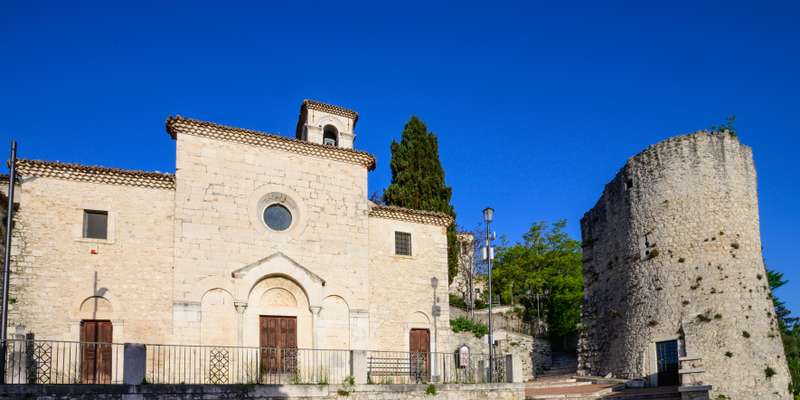- Home
- Useful Tips
- Where to experience traditional...
Many travelers seeking authentic Italian rural culture overlook Molise's hidden gem – its centuries-old sheep farming traditions. While 78% of visitors flock to Tuscany's well-trodden agriturismos, few realize Campobasso's surrounding hills offer equally rich experiences without the crowds. The challenge lies in finding working farms that welcome visitors respectfully, balancing tourism with daily agricultural rhythms. Overbooked tours and commercialized demonstrations often leave visitors with a superficial understanding of this ancient way of life. For those yearning to witness genuine transhumance practices or learn cheese-making from fifth-generation shepherds, knowing where and when to visit makes all the difference between a touristy encounter and transformative travel memory.


Timing your visit for authentic sheep farming activities
The rhythm of sheep farming near Campobasso follows seasonal patterns that dictate when visitors can witness the most meaningful activities. Spring (April-May) brings the vibrant spectacle of lambing season, when shepherds work round-the-clock assisting births – though be mindful this is an intense period requiring respectful distance. Come autumn (September-October), the age-old tradition of transhumance sees flocks migrating from highland pastures to winter grazing areas, creating breathtaking scenes of hundreds of sheep moving across the landscape. Summer offers cheese-making demonstrations as shepherds transform morning milk into prized pecorino by afternoon. Winter provides intimate opportunities to observe daily care routines in barns. Midweek visits typically avoid weekend family crowds, while early mornings let you observe milking before tourist groups arrive. Remember these are working farms first – calling ahead ensures your visit aligns with their schedule rather than disrupting critical farming operations.
Respectful ways to experience working sheep farms
Building genuine connections with Molise's shepherds starts with understanding their world. At Fattoria La Rocca, the Di Nucci family welcomes small groups to observe cheese-making if visitors follow simple rules: no sudden movements near the sheep, silence during milking, and closed-toe shoes in production areas. Azienda Agricola Colle delle Api offers participatory experiences like herb gathering for cheese flavoring, but stresses these are real work activities, not staged performances. The key is approaching farms as a guest rather than customer – bringing local honey or homemade jam as a small gift often opens doors to unexpected hospitality. Many shepherds speak limited English, but a few Italian phrases like 'Posso aiutare?' (May I help?) demonstrate respect. These subtle gestures frequently lead to invitations to share the shepherd's midday meal or after-work stories – moments that transform a simple farm visit into profound cultural exchange.
Where to find authentic farm stays near Campobasso
Several family-run operations offer immersive overnight experiences while maintaining authentic farming practices. Agriturismo Masseria Montepiano combines comfortable lodging with hands-on activities like wool processing using traditional methods. Their stone cottages overlook pastures where you can watch the flock at dusk – a magical experience unavailable to day visitors. For those seeking deeper immersion, Azienda Zootecnica Valentino provides rustic apartments where guests wake to the sound of sheep bells and can join the 5am milking if desired. These accommodations fill quickly during cheese production seasons, so booking three months ahead is advisable. Budget-conscious travelers can contact the Campobasso tourism office for listings of farms offering simple rooms without frills – think shared bathrooms and home-cooked meals at the family table. Wherever you stay, remember these are real homes; bringing slippers for indoor use and offering to help clear dishes goes far in showing appreciation for your hosts' generosity.
Beyond the farm – connecting with Molise's sheep farming heritage
The sheep farming tradition shapes Campobasso's entire cultural landscape, offering rich experiences beyond farm gates. Each morning, local caseifici (cheese dairies) like Caseificio Di Nucci sell still-warm ricotta to early risers – arrive by 7am to watch deliveries from nearby farms. On Tuesdays, the Campobasso farmers market features shepherds selling wool crafts and aged cheeses alongside their wives' homemade pasta. For historical context, the Museo della Cultura Pastorale in Sepino displays fascinating tools used by generations of Molise shepherds. Foodies shouldn't miss autumn sagre (food festivals) in nearby villages like Jelsi, where entire communities celebrate the sheep farming heritage with special dishes like ventricina salami and pecorino-stuffed focaccia. These authentic encounters often lead to invitations to private homes or tips about lesser-known farms – the kind of local connections that transform a simple visit into lifelong memories of Molise's pastoral heart.